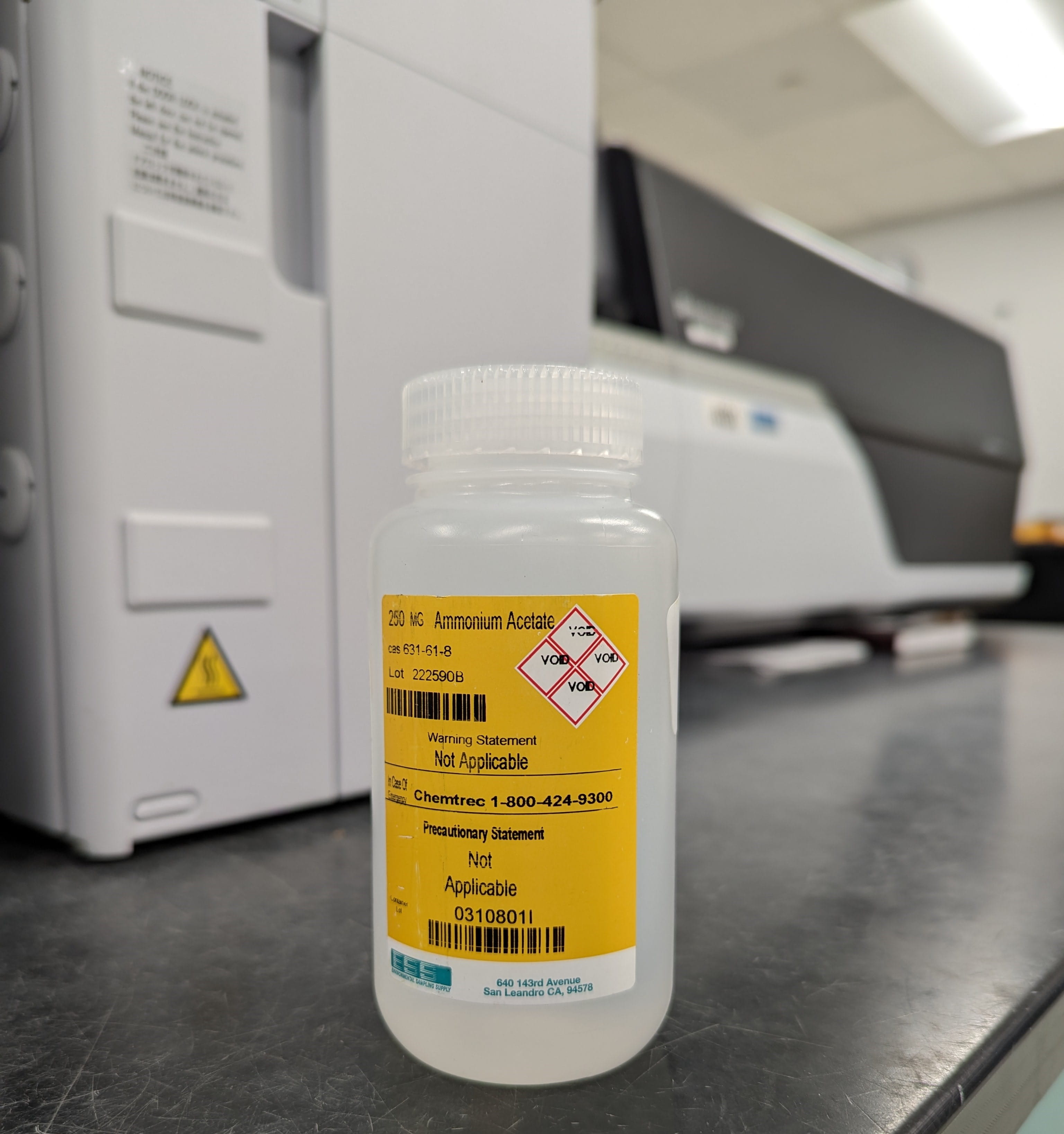The web Browser you are currently using is unsupported, and some features of this site may not work as intended. Please update to a modern browser such as Chrome, Firefox or Edge to experience all features Michigan.gov has to offer.
New PFAS standards will offer better protection for all Americans; Michigan continues to lead the nation
April 18, 2024
Last week, the Biden-Harris Administration issued the first-ever national, legally enforceable drinking water standard to protect communities from exposure to harmful per-and polyfluoroalkyl substances (PFAS), also known as "forever chemicals."

Drinking water sample in the EGLE laboratory.
"The new U.S. EPA standards for PFAS in drinking water will better protect all Americans from this class of toxic chemicals," said Aaron Keatley, Chief Deputy of the Michigan Department of Environment, Great Lakes, and Energy. "All Michiganders, and residents across the country, deserve to know that we are prioritizing their health and are working every day with partners at every level of government to protect the water coming out of Americans’ taps. Michigan has, and will continue to, lead the nation in protecting people from PFAS chemicals."
Michigan is already well ahead of many states regarding PFAS and has established its own drinking water standards -- known as Maximum Contaminant Levels (MCLS) -- for seven PFAS compounds. This is testament to Gov. Whitmer’s commitment to ensuring all Michiganders have access to clean, healthy drinking water.
Additional background
- Michigan’s head-start on the rest of the nation includes the statewide public water supply sampling that started in 2018 and ran through 2020.
- Since 2020, Michigan public water supplies have been regulated under Michigan’s Safe Drinking Water Act and are sampled on a regular basis.
- US EPA’s proposed MCLs are different than Michigan’s drinking water standards and will result in the Michigan PFAS Action Response Team (MPART) needing to integrate the federal standards into our existing programs and agencies.
- These MCLs do not go immediately into effect. States have three years to sample public water supplies (which Michigan has already done) and five years to get public water supplies into compliance.
- Implementation of the MCLs also requires rule making, which will begin in Michigan as soon as feasible. When promulgated, the final rules will also have implication on other programs—such the groundwater cleanup, surface water monitoring, and NPDES permits. Managers of each of the programs are undergoing review of the implications in close coordination with MPART.
- Until new drinking water rules are promulgated, the current state drinking water standards remain in effect. The corresponding groundwater cleanup criteria and surface water values for these substances will remain in effect until they are revised, as appropriate, in consideration of changes to the state drinking water standards as well as recent scientific literature on PFAS.
- MPART will continue to coordinate with the State Attorney General’s office on the current challenge to our state standards that is before the Michigan Supreme Court.
- Public water supplies are currently sampling under Michigan’s PFAS rules, and the proposed EPA rules will take some time to work their way through the state primacy process.
- Michigan will continue to regulate under the State’s rules, while working with drinking water systems throughout the state to prepare for these welcomed new federal standards.